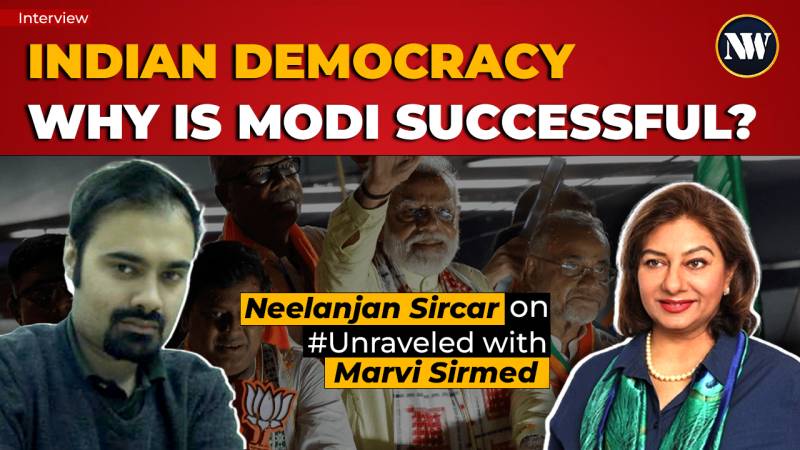In this episode of #Unraveled, host Marvi Sirmed is joined by Neelanjan Sircar, an Assistant Professor of Political Science at Ashoka University and a Senior Visiting Fellow at the Centre for Policy Research, Delhi. He writes on the political economy of India (with a focus on elections), comparative political behavior, and Bayesian methods. As the Lok Sabha elections wrap up, Narendra Modi's electoral success is discussed, attributing it to a combination of factors, including his ability to connect with the poor and middle class through effective branding and media control, expansion of the welfare state, and polarization through Hindu nationalism and anti-Muslim rhetoric, ultimately creating a direct connection with citizens and shaping public opinion in his favor. But what does this mean for the future of Indian democracy? Will Modi's third term further alter the dynamics of democracy and fundamental freedoms in India?


